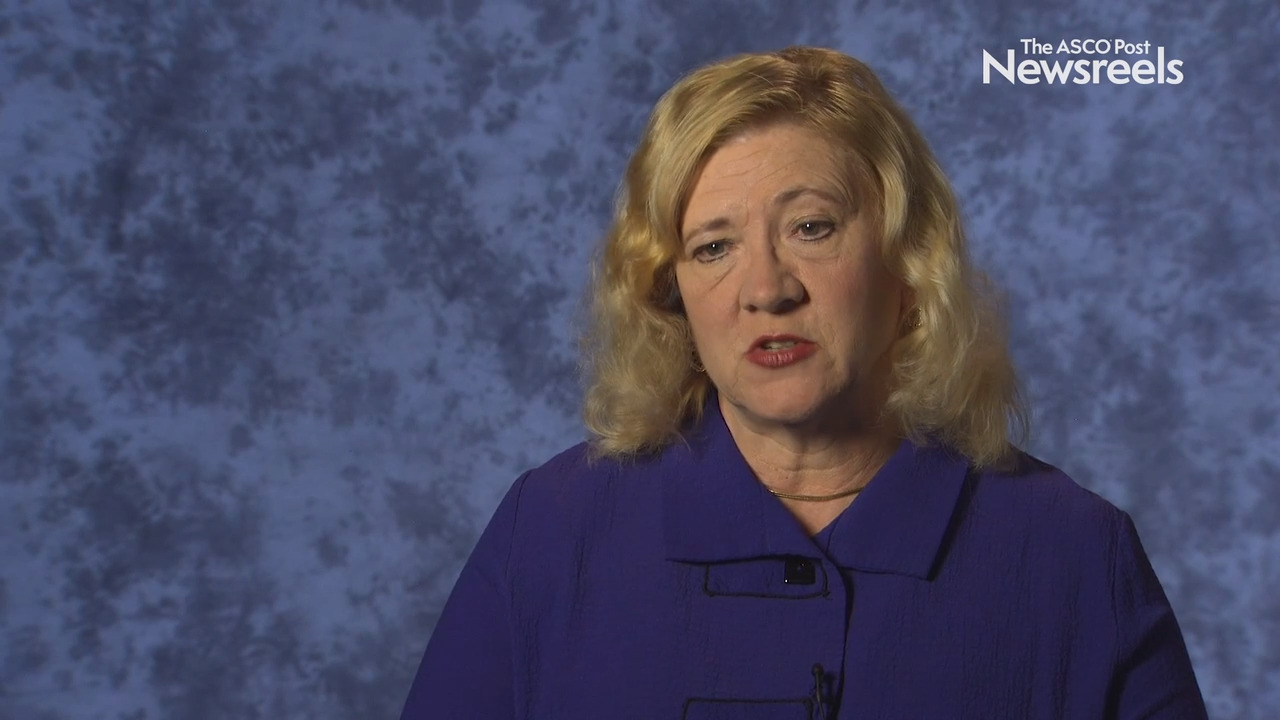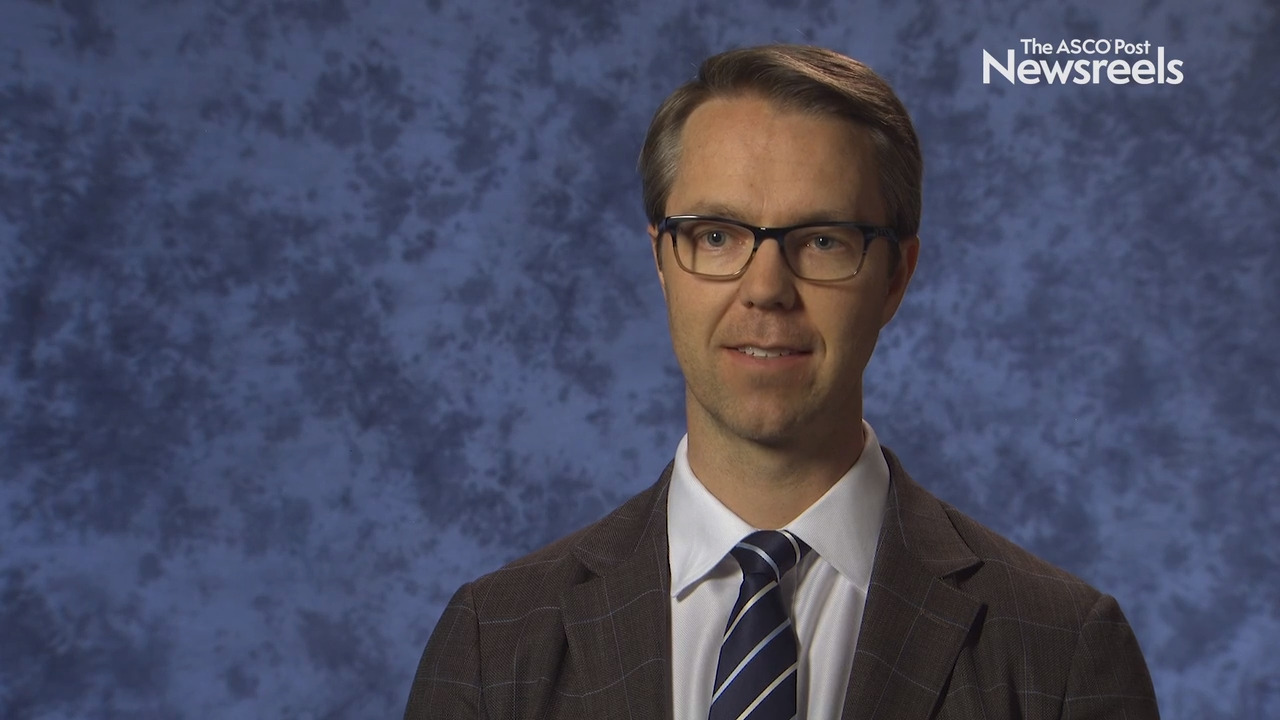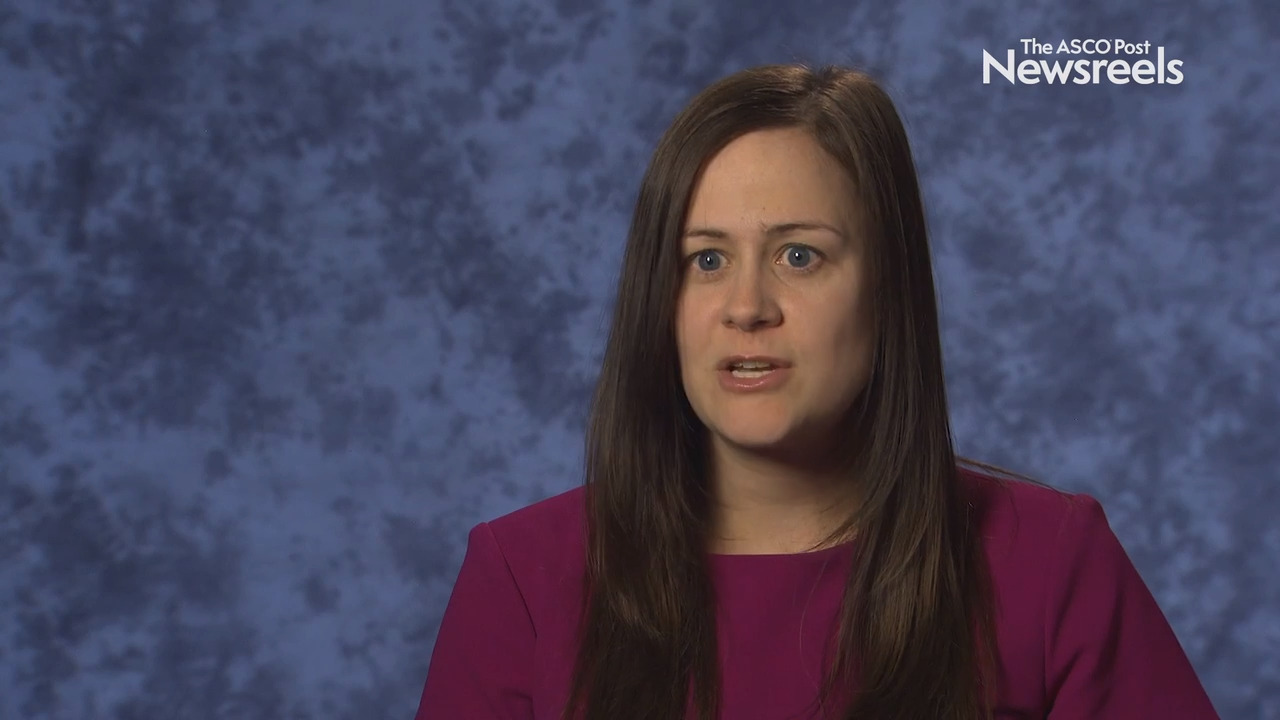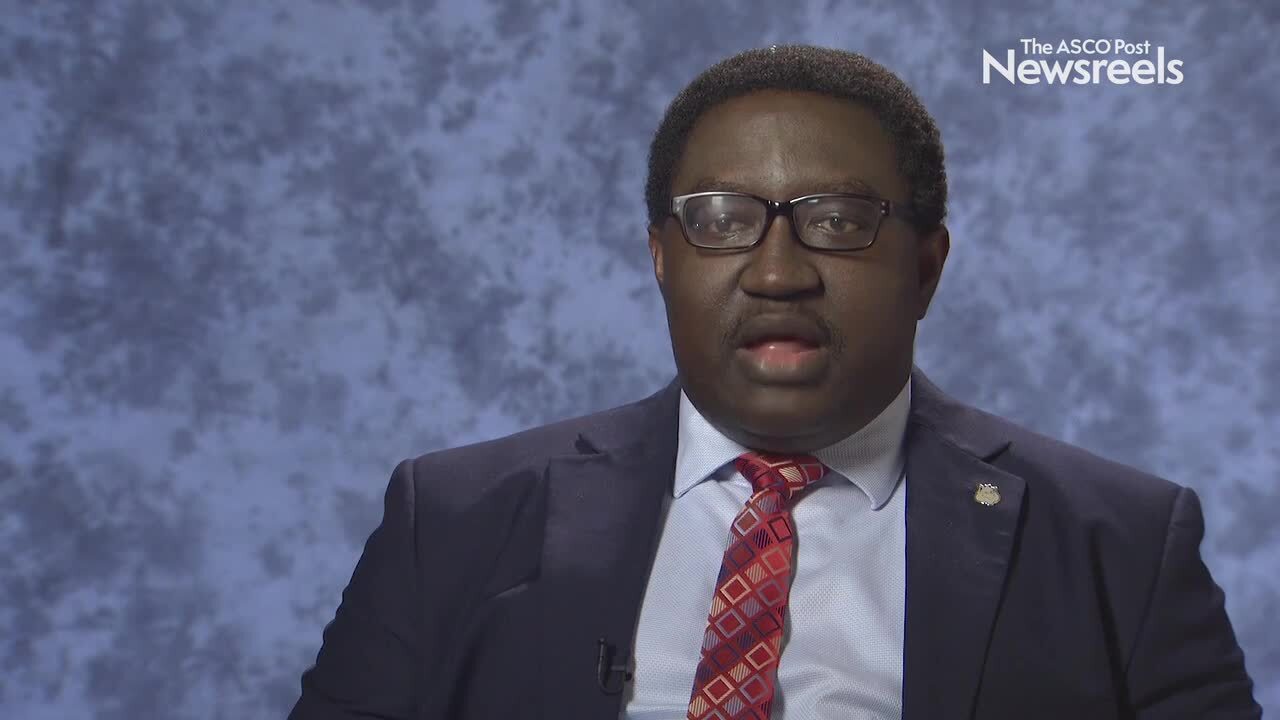Mihir M. Kamdar, MD, on Managing Cancer-Related Pain With Artificial Intelligence
2018 Palliative and Supportive Care in Oncology Symposium
Mihir M. Kamdar, MD, of Massachusetts General Hospital, discusses study findings on a smartphone app called ePAL, which significantly reduces pain and pain-related hospital admissions by combining patient-reported outcome data and artificial intelligence via a telemedicine platform (Abstract 76).
Leslie J. Blackhall, MD, of the University of Virginia, discusses abuse of opioids, prescribing responsibly, and reducing cancer pain while also decreasing the risk of misusing these agents.
Betty R. Ferrell, PhD, of City of Hope, discusses the many advances in immunotherapy and the drugs’ effect on patients’ quality of life, including psychological well-being.
Eric Roeland, MD, of Massachusetts General Hospital, discusses the wide variation among physicians in preventing vomiting from highly emetogenic chemotherapy (Abstract 74).
Elizabeth Jane Cathcart-Rake, MD, of the Mayo Clinic, discusses the frequency of side effects from immunotherapy, the need to closely monitor those receiving this treatment, and the role of clinicians in educating their patients on toxicities (Abstract 184).
Nosayaba Osazuwa-Peters, MPH, PhD, of St. Louis University, discusses study findings on married cancer survivors with advanced stage disease who were less likely to die by suicide, highlighting the value of supportive care in cancer survivorship (Abstract 181).





